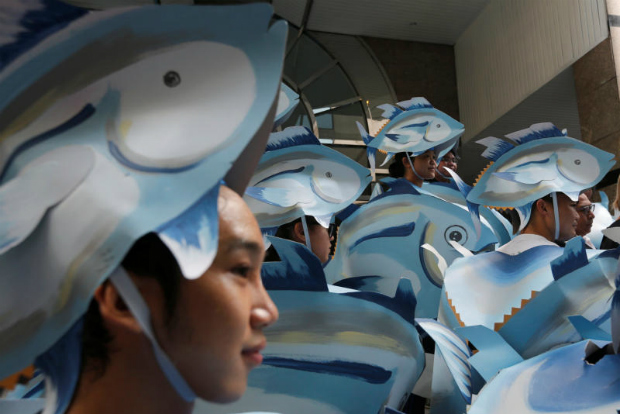
The SET-listed Thai Union Group Plc - owner of the tuna brands Chicken of the Sea, John West, Petit Navire, Mareblu, and Sealect - has committed to measures requested by the environmental pressure group Greenpeace to tackle illegal fishing, reduce overfishing and improve living standards of its workers.
“This marks huge progress for our oceans and marine life, and for the rights of people working in the seafood industry,” said Greenpeace International Executive Director Bunny McDiarmid. “If Thai Union implements these reforms, it will pressure other industry players to show the same level of ambition and drive much needed change. Now is the time for other companies to step up, and show similar leadership.”
Thai Union’s reforms include ensuring that independent observers monitor potential labour abuse, reducing the number of fish aggregating devices used globally in its supply chains by an average of 50% by 2020, extending its current moratorium on at-sea transshipment across its entire global supply chain unless new strict conditions are met by suppliers, reducing bycatch of seabirds, sharks and turtles, and enabling consumers to track their tuna back to the vessel it was caught on and identify the fishing method used.
“Thai Union has fully embraced its role as a leader for positive change as one of the largest seafood companies in the world,” said Thiraphong Chansiri, Thai Union’s CEO. “Thai Union looks forward to continuing to execute our … sustainability strategy, strengthened and enhanced by the joint agreement with Greenpeace and our shared vision for healthy seas now and for future generations.”
“Thai Union has set a new standard for the seafood industry to deal with destructive fishing, labour abuse, and unethical practices,” said Ms McDiarmid. "This is a great day for the hundreds of thousands of people around the world who want the seafood industry to take stronger action to eliminate these problems."
In a press release, Greenpeace said it would “continue to track Thai Union and the broader industry’s progress to ensure these commitments lead to real changes on the water”.
Greenpeace and Thai Union have agreed to meet every six months to assess the company’s implementation, with an independent third-party to review progress at the end of next year.